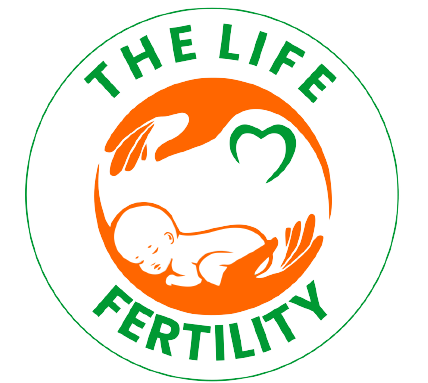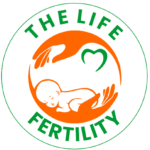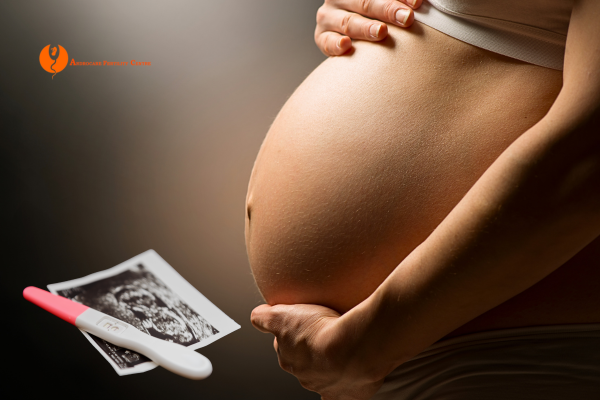Introduction:
Boosting pregnancy chances is a common goal for many couples, and with the right strategies, it can be more achievable than you think. When it comes to boosting pregnancy chances, understanding your body and optimizing your lifestyle plays a crucial role. From diet and exercise to stress management and timing, several factors can influence your fertility. I
n this guide, we’ll explore practical and scientifically-backed tips to enhance fertility, helping you take positive steps toward conceiving faster. Whether you’re just beginning your fertility journey or have been trying for a while, these insights will empower you with the knowledge to increase your chances of a successful pregnancy.
Table of Contents
Introduction:
Boosting Pregnancy Chances by Optimizing Your Diet for Fertility
Key Nutrients to Enhance Fertility
Foods to Include and Avoid
The Role of Hydration in Conception
Exercise and Physical Activity
The Impact of Regular Exercise on Fertility
Finding the Right Balance: Too Much vs. Too Little
Exercises That Support Reproductive Health
Understanding Your Menstrual Cycle
Tracking Ovulation for Better Timing
Recognizing Fertile Windows
Using Ovulation Prediction Tools
Managing Stress and Mental Health
How Stress Affects Fertility
Techniques to Reduce Stress
The Role of Mental Health in Conception
Lifestyle Changes to Boost Fertility
Smoking, Alcohol, and Caffeine: What to Avoid
Sleep’s Effects on Reproductive Health
Environmental Factors and Fertility
Medical Interventions and Assistance
When to Seek Professional Help
Overview of Fertility Treatments
Working with a Fertility Specialist
Conclusion
6 Tips For Boosting PregnancyChance
Boosting Pregnancy Chance by Optimizing Your Diet for Fertility
Your diet plays a crucial role in boosting pregnancy chances, as the nutrients you consume can directly impact your reproductive health. By making thoughtful food choices and ensuring that your body receives the right vitamins and minerals, you can create a more favorable environment for conception. Let’s explore some key aspects of how optimizing your diet can enhance fertility.
Key Nutrients to Enhance Fertility
Certain nutrients are essential for boosting pregnancy chances and supporting reproductive health. Folic acid, for example, is well-known for its role in preventing neural tube defects in early pregnancy, but it also supports ovulation and egg quality.
Other important nutrients include vitamin D, which helps regulate menstrual cycles, and omega-3 fatty acids, which are vital for hormone balance and reducing inflammation. Ensuring you get enough of these nutrients through diet or supplements can significantly enhance your fertility and improve your chances of conceiving. https://thelifefertility.com/boost-your-fertility-expert-advice-strategies/
Foods to Include and Avoid
When it comes to boosting pregnancy chances, the foods you choose to include or avoid in your diet can make a big difference. Antioxidant-rich foods like fruits, vegetables, nuts, and seeds assist in shielding your sperm and eggs from oxidative stress-related damage. The generation of hormones and general reproductive health are supported by lean proteins, whole grains, and healthy fats like those in avocados and olive oil.
On the other hand, it’s wise to limit or avoid processed foods, excessive sugar, and trans fats, as these can negatively impact fertility and hormone balance. By focusing on nutrient-dense, whole foods, you can create an optimal dietary foundation for conception.
The Role of Hydration in Conception
Staying properly hydrated is another key factor in boosting pregnancy chances. Water is needed for the reproductive system to be healthy and for the production of cervical mucus, which is essential for sperm to reach the egg. Thicker cervical mucus caused by dehydration can impede sperm motility and egg fertilization.
Thicker cervical mucus caused by dehydration can impede sperm motility and egg fertilization. Additionally, proper hydration supports overall circulation, which ensures that your reproductive organs receive the nutrients and oxygen they need to function optimally. By drinking plenty of water and staying hydrated, you can create a more supportive environment for conception.
Exercise and Physical Activity
Engaging in regular physical activity is an important aspect of boosting pregnancy chances. Exercise not only helps maintain a healthy weight, which is crucial for fertility, but it also improves overall health, reduces stress, and promotes hormonal balance. Understanding the right types and amounts of exercise can play a key role in enhancing your chances of conception.
The Impact of Regular Exercise on Fertility
Regular exercise has a positive impact on fertility by improving circulation, regulating hormones, and reducing stress—all factors that are vital for boosting pregnancy chances. Physical activity helps maintain a healthy weight, which is crucial since both underweight and overweight conditions can disrupt ovulation and reduce fertility.
Additionally, exercise supports the release of endorphins, which can help reduce stress and anxiety, further promoting a healthy reproductive system. By incorporating regular exercise into your routine, you can create a more favorable environment for conception.
Finding the Right Balance: Too Much vs. Too Little
Finding the ideal balance is crucial, even if frequent activity increases the likelihood of becoming pregnant. Too little physical activity can lead to weight gain, poor circulation, and hormonal imbalances, all of which can hinder fertility. On the other hand, excessive exercise, especially high-intensity workouts, can have the opposite effect by disrupting menstrual cycles and reducing the body’s ability to conceive.
It’s important to find a middle ground where you engage in moderate, consistent exercise that supports your overall health without overtaxing your body. This balance can help optimize your fertility and improve your chances of getting pregnant.
Exercises That Support Reproductive Health
Certain types of exercises are particularly effective in boosting pregnancy chances and supporting reproductive health. Low-impact activities like walking, swimming, and yoga are excellent choices, as they promote circulation and reduce stress without putting excessive strain on the body. Yoga, in particular, can help balance hormones, improve flexibility, and reduce tension in the pelvic area, which is beneficial for reproductive health.
Strength training exercises, when done in moderation, can also help build muscle and support a healthy metabolism, further enhancing fertility. By focusing on these supportive exercises, you can improve your overall well-being and create an optimal environment for conception.
Understanding Your Menstrual Cycle
Understanding your menstrual cycle is crucial for boosting pregnancy chances, as it allows you to identify the most fertile days of the month when conception is most likely to occur.
By becoming familiar with your cycle and knowing when ovulation happens, you can time intercourse more effectively, increasing the likelihood of pregnancy. Let’s delve into how tracking ovulation, recognizing fertile windows, and using ovulation prediction tools can enhance your fertility awareness.
Tracking Ovulation for Better Timing
During ovulation, a woman is most fertile as the process of releasing a developed egg from the ovary takes place. Tracking ovulation is essential for boosting pregnancy chances because it helps you identify the days when you are most likely to conceive.
You can track ovulation by monitoring changes in your cervical mucus, and basal body temperature, or by using ovulation prediction tools. Understanding when you ovulate allows you to time intercourse accordingly, maximizing your chances of fertilization during your most fertile period.
Recognizing Fertile Windows
The fertile window refers to the days in your menstrual cycle when conception is most likely to occur Including the day of ovulation and the five days that precede it, it usually lasts for six days. Recognizing your fertile window is key to boosting pregnancy chances, as having intercourse during this period greatly increases the likelihood of sperm meeting the egg.
By keeping track of your menstrual cycle and understanding the signs of fertility, such as changes in cervical mucus and body temperature, you can better predict your fertile window and plan for optimal timing.
Using Ovulation Prediction Tools
Ovulation prediction tools are a valuable resource for boosting pregnancy chances by helping you accurately pinpoint your most fertile days. These tools include ovulation predictor kits (OPKs), fertility monitors, and apps that track your menstrual cycle. OPKs provide you with a clear indicator of when you are going to ovulate by detecting the spike in luteinizing hormone (LH) that happens right before ovulation.
Fertility monitors combine LH tracking with other indicators like basal body temperature, offering a comprehensive view of your fertility. By using these tools, you can gain a more precise understanding of your cycle and enhance your chances of conceiving.
Managing Stress and Mental Health
Managing stress and maintaining good mental health are essential components of boosting pregnancy chances. The mind-body connection plays a significant role in fertility, and high levels of stress can disrupt this balance, making it harder to conceive.
By understanding how stress impacts fertility and adopting effective techniques to manage it, you can create a more supportive environment for conception. Let’s explore how stress affects fertility, ways to reduce stress, and the importance of mental health in your journey to parenthood.
How Stress Affects Fertility
Stress can have a profound effect on fertility, disrupting the delicate balance of hormones that regulate the menstrual cycle and ovulation. High levels of cortisol, a stress hormone, can interfere with the release of reproductive hormones like gonadotropin-releasing hormone (GnRH), which is crucial for ovulation.
This disruption can lead to irregular cycles or even anovulation (lack of ovulation), making it more difficult to time intercourse and conceive. By recognizing the impact of stress on your reproductive health, you can take steps to manage it, thereby boosting pregnancy chances.
Techniques to Reduce Stress
Reducing stress is vital for boosting pregnancy chances, and there are several effective techniques you can incorporate into your daily routine. Practices such as mindfulness meditation, yoga, and deep breathing exercises can help calm the mind and body, lowering cortisol levels and promoting hormonal balance.
Regular physical activity, getting enough sleep, and spending time in nature are also excellent ways to reduce stress. Additionally, talking to a therapist or joining a support group can provide emotional support and help you manage the anxiety that often accompanies the fertility journey. By actively managing stress, you can create a more peaceful and supportive environment for conception.
The Role of Mental Health in Conception
Mental health is closely linked to fertility, and maintaining a positive and balanced mindset can significantly boost pregnancy chances. Emotional well-being is essential not only for managing stress but also for supporting overall reproductive health.
Anxiety, depression, and other mental health challenges can affect your body’s ability to conceive by disrupting sleep, appetite, and hormone regulation. Taking care of your mental health through self-care practices, therapy, and building a strong support system can improve your chances of conceiving and help you navigate the emotional ups and downs of developing stronger fortitude and being fruitful.
Lifestyle Changes to Boost Fertility
Making positive lifestyle changes can play a significant role in boosting pregnancy chances. Certain habits and environmental factors can have a profound impact on reproductive health, either supporting or hindering your ability to conceive.
By understanding what to avoid and how to optimize your daily routine, you can create a healthier foundation for fertility. Let’s examine the consequences of sleep deprivation, the impact of environmental factors on fertility, and the impacts of alcohol, coffee, and smoking. https://thelifefertility.com/how-to-increase-ivf-success-rate/
Smoking, Alcohol, and Caffeine: What to Avoid
Smoking, alcohol, and excessive caffeine intake are all known to affect fertility negatively, and avoiding these substances is crucial for boosting pregnancy chances. Smoking can cause early menopause, lower the quality of eggs and sperm, and raise the chance of miscarriage. Alcohol, even in moderate amounts, can disrupt hormone levels and impair ovulation, making it harder to conceive.
In a similar vein, excessive coffee intake has been connected to a higher chance of miscarriage and delayed conception. By eliminating or significantly reducing these substances from your lifestyle, you can improve your reproductive health and enhance your chances of conceiving.
Sleep’s Effects on Reproductive Health
Adequate sleep is essential for overall health and has a direct impact on reproductive health, making it a key factor in boosting pregnancy chances. Poor sleep can lead to hormonal imbalances, including disruptions in the production of reproductive hormones like estrogen and progesterone. This can affect your menstrual cycle, ovulation, and overall fertility.
Additionally, lack of sleep can increase stress levels, further complicating conception efforts. Prioritizing 7-9 hours of quality sleep each night can help regulate your hormones, improve your mood, and support your body’s natural fertility processes.
Environmental Factors and Fertility
Environmental factors can also play a significant role in fertility, and being aware of these influences is important for boosting pregnancy chances. Exposure to environmental toxins such as pesticides, heavy metals, and endocrine-disrupting chemicals found in plastics and personal care products can negatively affect both male and female fertility.
Hormonal abnormalities, decreased sperm quality, and hampered egg development can all result from these poisons. To minimize exposure, opt for organic foods, use natural cleaning and personal care products, and avoid plastic containers for food and drink. By making these changes, you can reduce your risk of exposure to harmful substances and create a healthier environment for conception.
Medical Interventions and Assistance
While lifestyle changes and natural methods can significantly enhance fertility, sometimes medical interventions and professional assistance are necessary to boost pregnancy chances.
Understanding when to seek help, the available fertility treatments, and how to collaborate with a fertility specialist can empower you to take the next steps on your journey to parenthood. Here’s an overview of when and how to seek medical support for conception.
When to Seek Professional Help
Knowing when to seek professional help is crucial for boosting pregnancy chances, especially if you’ve been trying to conceive for an extended period without success. Typically, couples under 35 are advised to consult a fertility specialist after a year of trying, while those over 35 should seek help after six months.
If you have known medical conditions such as polycystic ovary syndrome (PCOS), endometriosis, or irregular menstrual cycles, it may be wise to consult a specialist even sooner. Early intervention can lead to a more accurate diagnosis and timely treatment, improving your chances of conception.
Overview of Fertility Treatments
There are a variety of fertility treatments available that can help boost pregnancy chances, depending on the underlying cause of infertility. Common treatments include medications like Clomiphene (Clomid) to stimulate ovulation, intrauterine insemination (IUI), and in vitro fertilization (IVF).
In some cases, surgical interventions may be necessary to correct physical issues like blocked fallopian tubes or fibroids. Each treatment option comes with its own set of procedures, success rates, and considerations, and your fertility specialist will work with you to determine the best approach based on your individual situation.
Working with a Fertility Specialist
Collaborating with a fertility specialist is an essential step in boosting pregnancy chances when natural methods alone aren’t enough. A fertility specialist can conduct a thorough evaluation of both partners, including blood tests, imaging studies, and semen analysis, to identify any underlying issues. Based on these findings, the specialist will develop a personalized treatment plan aimed at maximizing your chances of conception.
Building a strong, trusting relationship with your specialist is important, as this partnership will guide you through the complexities of fertility treatment and help you make informed decisions about your care.
Conclusion
Boosting pregnancy chances involves a holistic approach that combines lifestyle changes, understanding your body, and seeking medical assistance when needed. By optimizing your diet, maintaining a balanced exercise routine, managing stress, and making informed lifestyle choices, you can create a supportive environment for conception.
Understanding your menstrual cycle and using ovulation prediction tools can further enhance your fertility awareness, while professional help and fertility treatments offer additional support when natural methods aren’t enough.
Whether you’re just starting your journey or have been trying for some time, these strategies can significantly improve your odds of conceiving. Remember, boosting pregnancy chances is about empowering yourself with knowledge, making healthy choices, and being proactive in your approach to fertility.



